For many patients, blood transfusion is not an option, due to personal preferences, religious beliefs, or biological conditions. Our team believes in supporting your right as a patient to make informed decisions involving your care. We respect your beliefs and work with you to accommodate individual blood management needs and preferences.
The Bloodless Medical and Surgical Program implements science-based medical and surgical techniques aimed at conserving a patient’s own blood and minimizing or avoiding the need for the transfusion of donor blood components. This is accomplished through an extensive team approach, integrating patients with physicians, nurses and laboratory staff.
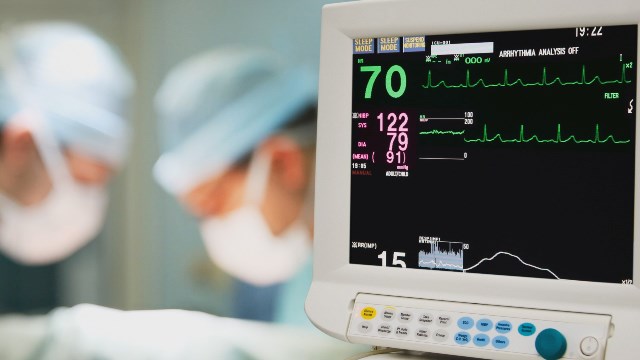
There is strong scientific evidence that overall, patients who avoid transfusions have:
-
Faster recoveries
- Shorter hospital stays
- Lower rates of post-op complications including heart attack, stroke and infections
- Avoid risks associated with transfusions such as allergic reactions, contamination or exposure to viruses/infections or receiving the wrong blood type
Tune In
April 27, 2023
What is bloodless medicine? For some people, blood transfusion is not an option due to personal preferences, religious beliefs, or biological conditions. Richard Evans, MD, Director of the Bloodless Medicine Surgical Program at WMCHealth's St. Anthony Community Hospital and Good Samaritan Hospital, described this alternative to blood transfusion on WTBQ Radio’s “Health Matters.” He explained how it can decrease blood loss and enhance a patient’s own blood supply during surgery.
June 9, 2022
Listen to “House Calls” on WRCR Radio with Dr. Richard Evans, Director of the Bloodless Medicine Surgery Program at Bon Secours Charity Health System, a member of the Westchester Medical Center Health Network. He was interviewed about the benefits of bloodless medicine surgery and why some patients make this choice.
March 31, 2022
Listen to “Health Matters” on WTBQ Radio with Dr. Richard Evans, Director of the Bloodless Medicine Surgery Program at Bon Secours Charity Health System, a member of the Westchester Medical Center Health Network. He discusses how we utilize technology and techniques to conserve a patient’s own blood during surgery.
The Bloodless Medicine Surgical Program involves a combination of medical and surgical techniques, as well as technology and strategies to decrease blood loss and enhance a patient’s own blood supply. We offer many high-quality, safe, and effective alternatives to blood transfusions.
The BMSP functions as the hub for a multidisciplinary team approach to providing transfusion free care using evidence-based approach. Blood loss during the surgery is expected, and our doctors implement strategies ahead of time to compensate for this loss of blood. Strategies include:
Pre-Surgery Strategies
As we plan your procedure, we will select the least invasive approach appropriate for your condition to minimize damage to tissues and reduce the amount of blood loss.
- The amount of blood drawn for testing before and after surgery will be minimized through micro-sampling, eliminating wasted blood.
- Intravenous and oral iron therapy can help prepare the anemic patient for surgery
- Erythropoiesis-stimulating agents are administered up to four weeks in advance to stimulate your own red blood cell production to help counteract potential future blood loss.
- Vitamins and nutritional supplements that increase the blood’s ability to carry oxygen may be an option for some patients. These drugs and supplements, when taken before surgery, can increase the number of red blood cells, which help your body handle blood loss more effectively.
- Stop Smoking – Smoking decreases the levels of oxygen that are delivered to your body. During a bloodless surgery, oxygen delivery is crucial. So speak to your doctor about quitting smoking.
During Surgery Strategies: Minimizing bleeding and blood loss during surgery 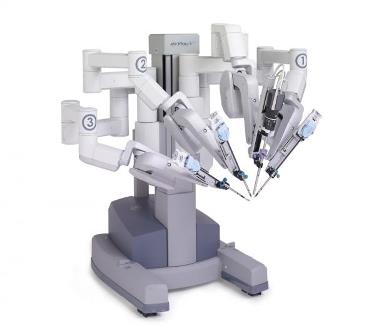
Our goal during surgery is to prevent or minimize bleeding, and to recover any blood that is lost so that it can be put back into the patient’s bloodstream.
-
A technique called “acute hemodilution” allows us to dilute the blood in the operating room, at the beginning of the procedure, so that when blood is lost, the impact on the body is lessened.
- Minimally invasive surgery and meticulous surgical techniques utilizing the da Vinci and Mako robots:
- Surgical instruments and techniques specially designed to minimize blood loss by using the smallest or most efficient incisions.
- Special anesthesia techniques can minimize bleeding by safely lowering blood pressure.
- The harmonic scalpel, advanced electrocautery, and laser are used to cut tissue while clotting the blood almost immediately, will substantially reduce blood loss.
- Advanced topical, and intravenous hemostatics (products that stop bleeding by stabilizing clot) can be used before, during, and after surgery.
- An Intraoperative cell salvage machine, a device that collects lost blood, washes it, and allows us to return it back to the patient, can be used to maintain healthy blood volume without transfusions.
Post-Surgery Strategies
-
Certain medications can be used to stimulate the body’s ability to produce red blood cells after surgery.
- Hyperbaric Chamber: increases oxygen concentration in the blood
- Micro sampling techniques can substantially reduce the amount of blood lost due to routine blood testing after surgery. In some cases, this method of blood conservation reduces blood loss from testing by 90 percent.
What Is Bloodless Medicine?
It is a program that is focused on patient-centered care, in which medical and surgical patients are treated without the use of donor provided blood.
Why Do Patients Choose Bloodless Medicine And Surgery?
Patients have many reasons for wanting to avoid blood transfusions. For some, religious beliefs are the primary reason. For others, concern about the safety of the blood supply or the potential health consequences of blood transfusions are the main factors.
How Can You Perform Surgery Without Blood?
The multi-disciplinary team at Good Samaritan Hospital prepares you with medication and iron supplements for a few weeks prior to surgery to stimulate the production of more red blood cells. During surgery, our team conserves your blood by using meticulous technique and state-of-the-art surgical instruments to stop or prevent excessive bleeding. In many cases, blood lost during a surgical procedure can be salvaged and recycled.
What Are The Benefits Of A Bloodless Approach?
For patients who do not consider blood transfusion an option, bloodless medicine and surgery provide peace of mind along with access to the very best healthcare. However, there are additional health benefits for all patients who opt for a bloodless approach. Patients who do not receive blood transfusions have been shown to recover faster, have shorter hospital stays, and experience fewer infections. In addition, they avoid the risks of allergic reactions, contamination, or receiving the wrong blood type. Research has also shown that patients who undergo bloodless surgery have fewer heart attacks and strokes after surgery than those who receive transfusions.
How Can I Be Sure I Will Receive Bloodless Care?
Our healthcare team has agreed that they will provide bloodless care to any patient who requests it. Patients will be identified at registration and then banded as “bloodless patients” throughout their stay.
Is Bloodless Medicine And Surgery Safe?
Yes, the Good Samaritan Hospital Bloodless Medicine and Surgery Program offer you the best possible care without the use of blood. Research and studies have shown that people who opt for bloodless care benefit by shorter hospital stays, decreased risk of infections, lower rates of post-op complications and less allergic and immunological reactions.
If I Choose Bloodless Care, Can I Change My Mind At A Later Date?
Yes, participation in the Bloodless Medicine and Surgery program is completely voluntary, and you may withdraw at any time.
Why Should I Choose Good Samaritan Hospital For Bloodless Care?
We deliver transfusion-free services at an individualized level tailored to your specific medical needs. A Bloodless Medicine and Surgery team member is available 24 hours a day, seven days a week to assist you and answer your questions. Good Samaritan Hospital physicians that are committed to transfusion-free services represent a full range of medical and surgical disciplines.
Our Bloodless Medicine Surgery Program Leadership Team
Richard Evans, MD, FACS, Director Bloodless Medicine Surgery Program; Vice President Surgical Services, Bon Secours Charity Health System
Seth Benkel, MD, Director of Hematology, Good Samaritan Hospital
Sophie Crawford-Rosso, RN, MSN, NE-BC, Chief Nursing Officer, Bon Secours Charity Health System
Nancy Zupa, RN, Director of Perioperative Services, Good Samaritan Hospital
Danielle Hansen, RN, OCN, Nurse Coordinator Bloodless Medicine Surgery Program, Good Samaritan Hospital
Karen Stoohs CPCS, CPMSM, Director, Medical Staff Services, Bon Secours Charity Health System
Physician Members of the Bloodless Medicine Surgery Program Team
Orthopaedics
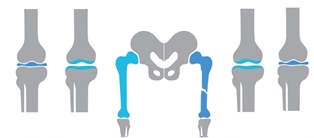
Kenneth Austin, MD
Arup Bhadra, MD, Director of the Joint Replacement Program, Good Samaritan Hospital
Mark Medici, MD, Orthopaedic Section Chief, Good Samaritan Hospital
Barry Kraushaar MD, Director of Sports Medicine, Good Samaritan Hospital
Patrick Murray, MD
Richard Popowitz, MD
A. Max Somberg, MD
Neal Shuren, MD
Urology
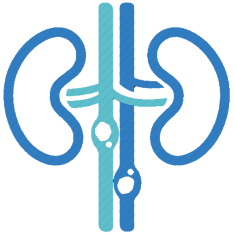
Richard Evans, MD, FACS, Director Bloodless Medicine Surgery Program; Vice President Surgical Services, Bon Secours Charity Health System
Neurological Surgery

Jeffrey Oppenheim, MD, Section Chief of Neurosurgery, Good Samaritan Hospital
Jeffrey Degen MD
Thoracic Surgery

Mark Ginsburg, MD, Section Chief of Thoracic Surgery, Good Samaritan Hospital
Lyall Gorenstein MD
Vascular Surgery

Michael Schwartz, MD, Section Chief of Vascular Surgery, Good Samaritan Hospital
General Surgery

Frank Aversano, MD
Payrush Lakhtaria, MD
George Liberis, MD
Cardiology and Cardiac Surgery

Cary Hirsch, MD, Co-Director Active International Cardiovascular Institute, Good Samaritan Hospital
Lee Root, MD
Sunandan Pandya, MD
Martin Cohen, MD
Lance Kovar, MD
Rajiv Singh, MD
David Spielvogel, MD
Ear, Nose and Throat

Edward Rhee, MD
Daniel Grinberg, MD
Podiatry

Jaime Lyn Garber, DPM
Oscar Castillo DPM
Gastroenterology

Peter Chang, MD
Louis May, MD
Winson Lo, MD
Joshua Olstein, MD
Richard Moccia, MD
Vipul Shah, MD
Pediatrics

Soheir Haram-Mourabet, MD
Pulmonary

Benjamin Wind, MD
Jayesh Mehta, MD
Internal Medicine

Dean Miller, MD
Lisa Ferrara, MD
Scott Bernstein, MD
C. ST. Louis, MD
Hematology/Oncology

Seth Benkel, MD
Irina Rybalova, MD
Nephrology

Lalitha Ravichandran, MD
Steven Yablon, MD
Hospitalist

Bijiou Chacko MD, Director Hospitalist Program, Good Samaritan Hospital
Catherine Alcarez, MD
Allergy

Joel Selter, MD
Pathology

Lori Anderson, DO
Emergency Medicine
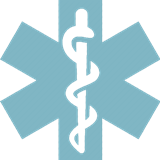
Adrienne Wasserman, MD, Emergency Medicine Director, Good Samaritan Hospital
Dennis Mao, MD
Teresa Sullivan NP
Obstetrics and Gynecology

Jyotika Agochiya, MD
Sema Bank, MD
Patrick Popiel, MD
Ophthalmology

David Liebergall, MD
Simeon Lauer MD
Radiology

Scott Luchs, MD, Radiology Director, Good Samaritan Hospital
Anesthesia

Paolo Trubiano, MD